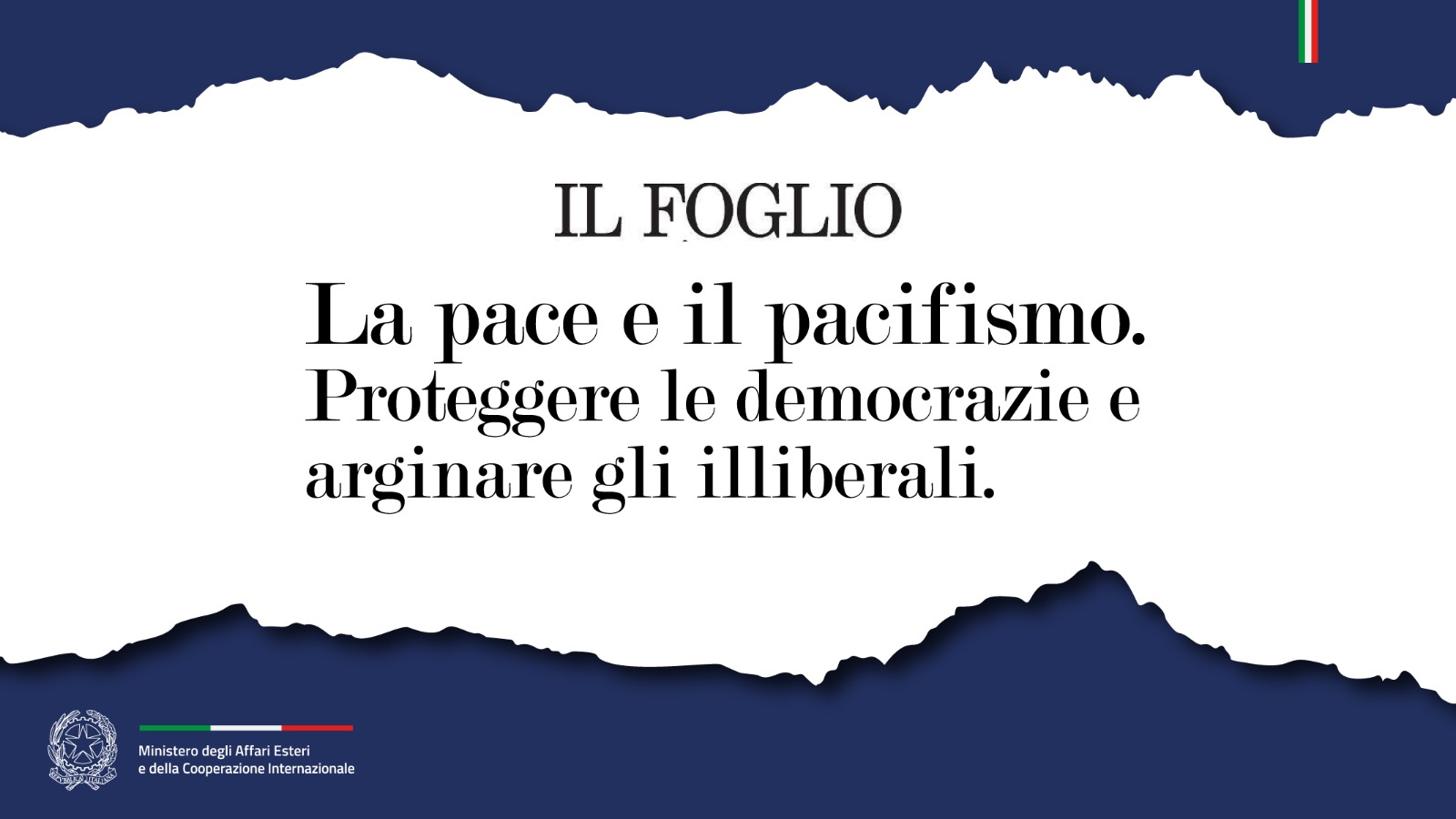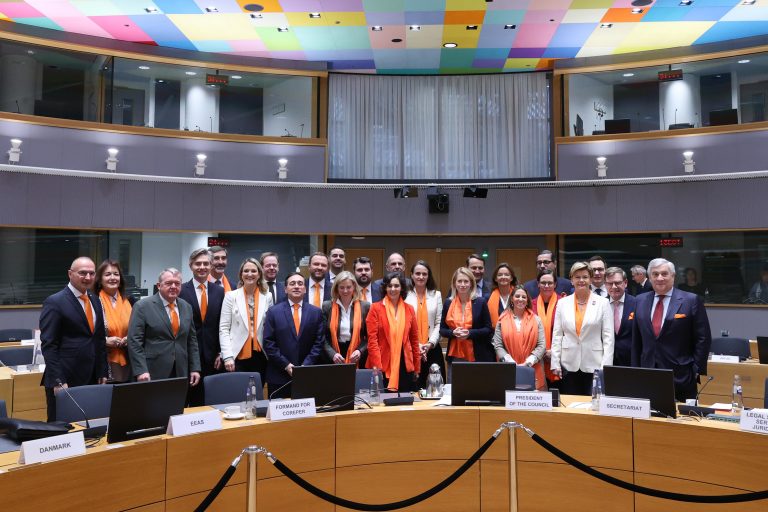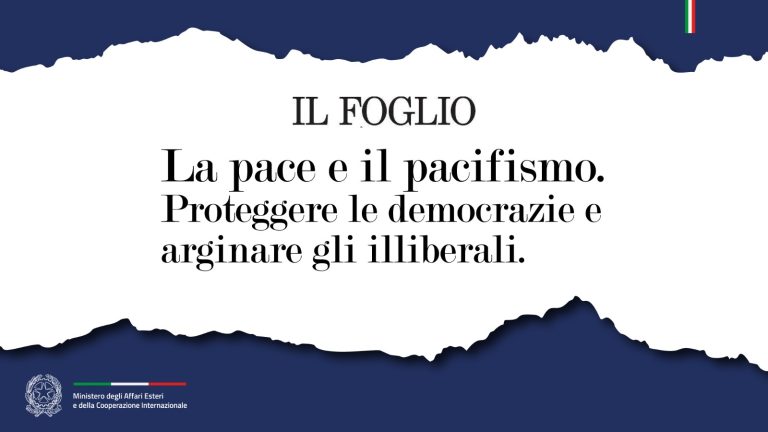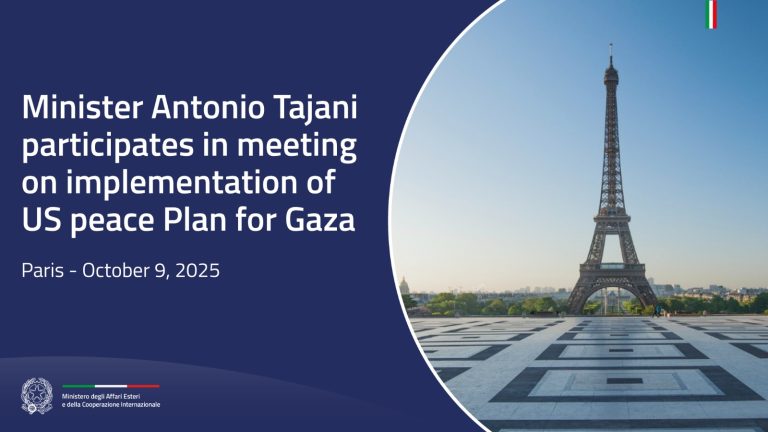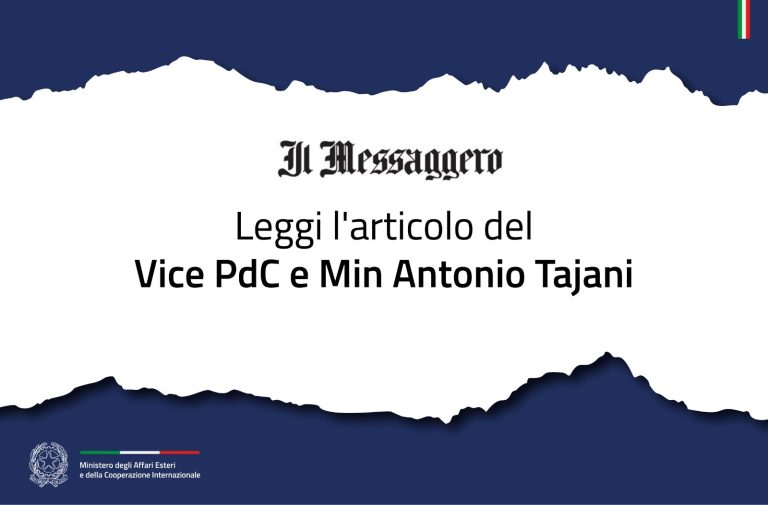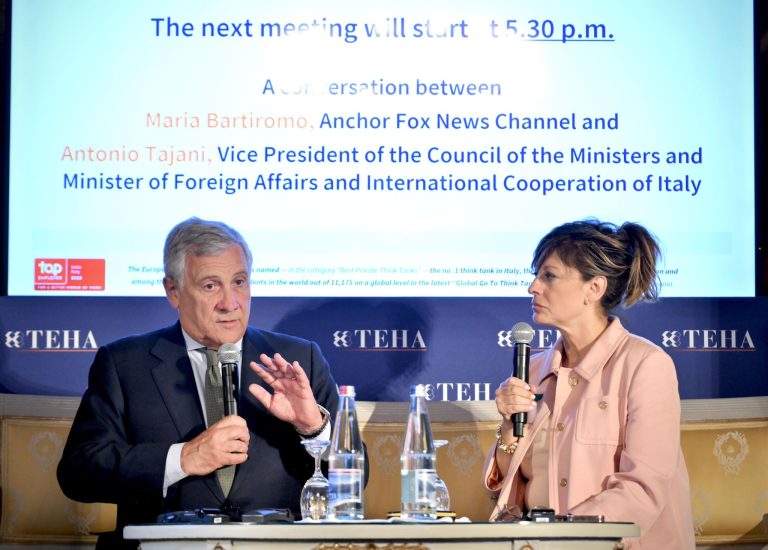What does it mean to be optimistic today when it comes to Europe?
It means understanding that there is no alternative to the European choice. We must therefore endeavour to make Europe ever stronger, ever more cohesive, and ensure that the project of the founding fathers of Europe can be achieved.
The first was an easy question; the difficult one is the following: how do you recognize a Eurosceptic, and how dangerous is it to be Eurosceptic in this historical phase?
Euroscepticism means not believing in a project that offers us the guarantee of improving our citizens’ lives – a project that strengthens our identity, our history, our way of being. Europe is us, Europe is a concept that dates back to ancient times, Europe is the fruit of our culture, our history: Roman law, Christianity, the Middle Ages, Renaissance, the Enlightenment. We are ourselves also in wars and divisions. Thinking that Europe is a failed project is profoundly wrong, because we would be denying ourselves. At this time, when there is great global competition and the risk of geopolitical transformations, how can we – 60 million Italians – think we can compete with a billion and a half Chinese, a billion and a half Indians? Let us also add the United States and the Russian Federation, as well as Africa, which will have two and a half billion inhabitants in 2050: if we are half a billion Europeans, then probably together, with a common project, we can count for more and better protect our interests.
Can we be optimistic that Europe’s so-called patriots, i.e. the illiberal right-wing parties, will not count for anything and remain idle for a long time?
This depends on voters: if the forces that believe in Europe are capable of solving citizens’ problems, both right-wing and left-wing populisms are bound to fail. Far-right Euroscepticism and far-left Euroscepticism collide, waging common battles even while claiming they must fight each other. We need to find responses to this, resolve some major issues, bring institutions closer to citizens, ensure that Europe is not an ideological Europe, but a Europe that defends certain values while also taking society into account. There are social projects, there are social issues that cannot be overlooked by a few officials living and working in Brussels for the EU institutions, who perhaps studied in Bruges and think they can solve problems with little understanding of reality.
While we are talking – speaking of optimism – a very important peace plan is underway in the Middle East. With specific reference to this peace plan, how do you recognize the so-called fake pacifists—those who, not only on the Middle East front, but possibly also on other issues, cheer for peace but are actually agents of disorder?
I do not believe in pacifism, I believe in peace, I believe in peacemakers. We need to build peace. Peace is not built by waving a few flags or shouting a few slogans and then perhaps turning a peace march into a demonstration where shop windows are smashed and police officers, Carabinieri, and financial police, who have nothing to do with it, are beaten. Building peace, in my opinion, means building it day by day: I believe in the model of peace that Pope Leo XIV indicated on the day of the inauguration of his pontificate, which is the peace that begins with each of us. Living peace, building peace, having peace in our hearts: only in this way can we be peacemakers. Peace is also dialogue; it is built in relations between people. It is not just when a treaty is signed after a war; peace is built day by day. It is a bit like freedom: if you do not defend it, then when you see a war breaking out, you do not know what to do, because you realize that the peace you had was a precious asset. Piero Calamandrei said that freedom is like air; you realize its value only when it begins to be scarce. The same holds true for peace.
Speaking of freedom, there are two other crucial questions. How can we explain to those who still have doubts about how dangerous Russia is for Europe? How important is what we are doing and must continue to do to defend Ukraine?
Russia wanted to attack Ukraine for a project: the restoration of the Soviet Union. Putin, who was a great leader of the KGB, is an autocrat and believes he can rebuild the Soviet Union, an empire, by force. His interests, however, limit the freedom of other countries – Ukraine, Georgia, Moldova, all the Eastern European countries – that conquered it after years of dictatorship. It is therefore right to defend freedom.
At a certain point, Putin had chosen to have a relationship with the free Western world, when, with the Pratica di Mare agreement, he chose to side with NATO and Europe.
Do you remember the famous meeting between Bush, Putin and Berlusconi, who represented Europe on that occasion? After a couple of years, however, Putin changed his mind. Since then, his position has become hostile to our world. This does not mean we should be at war with Russia, but we need to make Russia understand that we are ready and unwilling to submit to its will; we want to coexist in peace. We want dialogue, but we cannot accept the use of force to achieve hegemonic goals; therefore I hope Russia will change its position after Putin, and possibly even that Putin will come to his senses: we are not Russia’s historic enemies. But how can we win this war against Putin and not against Russia? I believe the role of the United States is crucial. If the United States decides to stop Russia and China, elsewhere, decides to follow suit, then a peace agreement with Ukraine can be reached. It is difficult for Putin to quickly backtrack for a number of reasons: because an autocrat can never tell his people, “I am losing”; because he wants to gain ever more ground, and because his entire industry is now geared toward war production; his army, nearly a million and a half soldiers, earns three times what workers earn. Backtracking means telling over a million people: “From tomorrow, you will earn two-thirds less than you earn today.” This creates a social problem, just as it creates a problem in the immediate reconversion of the defence industry. Therefore, in my opinion, all of this makes a peace agreement more difficult. However, I was pleasantly surprised that China has joined Italy’s appeal through the United Nations for an Olympic truce during the Milan-Cortina Games: if everyone agrees to support our proposal, a truce could probably lead to some progress.
The final issue concerns Italy: defending freedom also means defending the freedom to do business and the freedom to have a more prosperous economy, and Forza Italia has always fought for lower taxes. Can we say that at the moment – considering the way the budget is developing – there is not the overwhelming idea of lowering taxes, as we might expect from a right-wing, conservative government?
But the idea of lowering taxes is there, and that is the path to be followed: to ensure that wages are not too low for the middle class, but also to try to ensure that those currently living below the poverty line can climb back up. The issue just lies in the fact that the timeframe for a true fiscal revolution is long, also because unfortunately we found ourselves in a terrible situation regarding the Superbonus, which was probably a good idea – at first – to get the construction industry moving again, but it had to be a temporary measure, with strict controls, while it has actually become a measure sine die, with too many crooks who took the money and fled to Monte Carlo without doing anything.
But cannot something more be done about taxes in this budget law?
We are working hard; we are working on reducing personal income tax (IRPEF) and on other measures. Let us see; it is not easy because we also need to invest in healthcare, which is a key issue. As Forza Italia, we are pushing for a reduction in corporate taxes with a bonus on corporate income tax (IRES), i.e. a tax break for investment. We are working hard, and I hope that Tuesday will bring positive signs for companies and workers, because the lower taxes are paid, the more consumption increases, and if consumption increases, production increases, and through this whole process, more money flows into the State coffers.
Final question: is there anything the government can do better over the next two years?
Absolutely, so. We need to do more for healthcare and we need to do more to reduce taxes.

